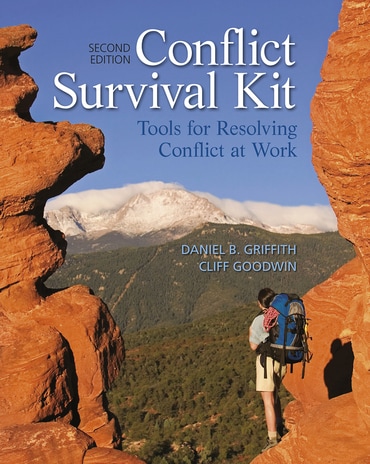Switch content of the page by the Role togglethe content would be changed according to the role

Conflict Survival Kit: Tools for Resolving Conflict at Work, 2nd edition
Published by Pearson (July 14, 2021) © 2013
- Daniel B. Griffith Purdue School of Engineering and Technology at Indiana University and Purdue University Indianapolis
- Cliff Goodwin Purdue School of Engineering and Technology at Indiana University and Purdue University Indianapolis (
Pearson+ subscription
per month
-month term,ISBN-13: 9780137549917
Conflict Survival Kit: Tools for Resolving Conflict at Work
Published 2021
Paperback
$95.99
Price Reduced From: $119.99
ISBN-13: 9780132741057
Conflict Survival Kit: Tools for Resolving Conflict at Work
Published 2012
Need help? Get in touch